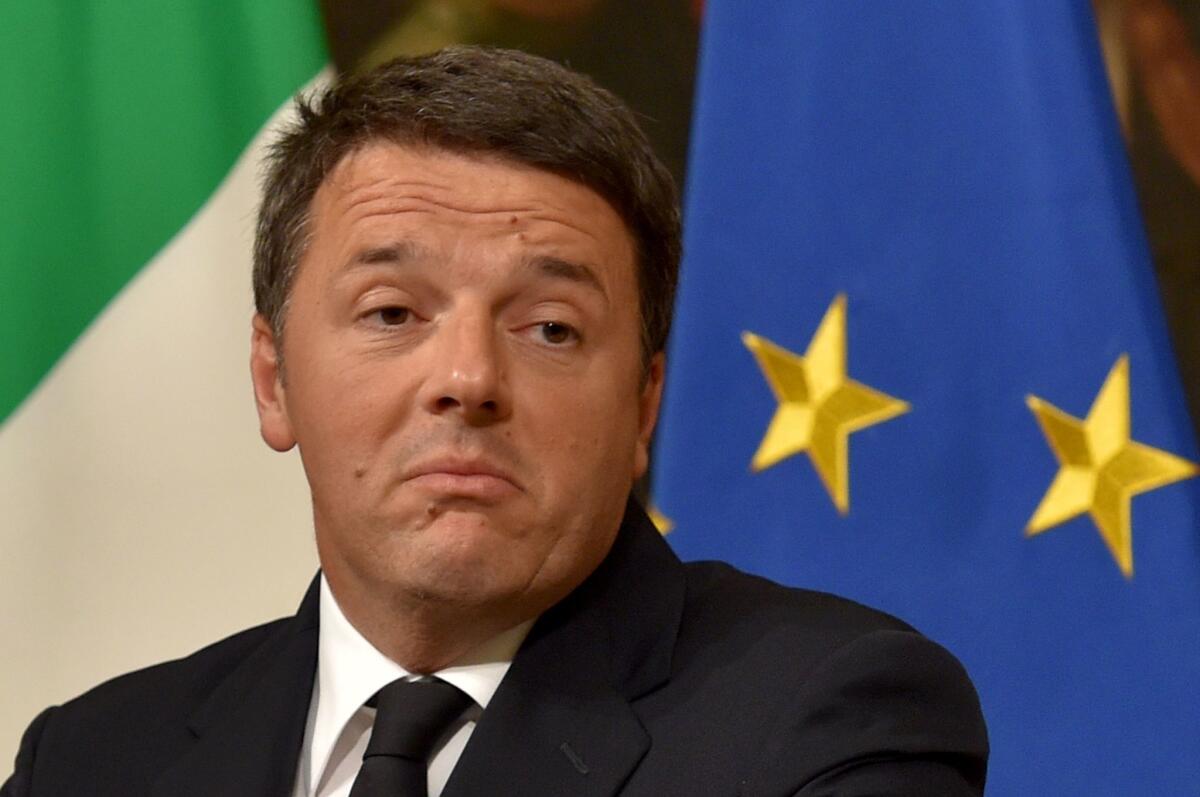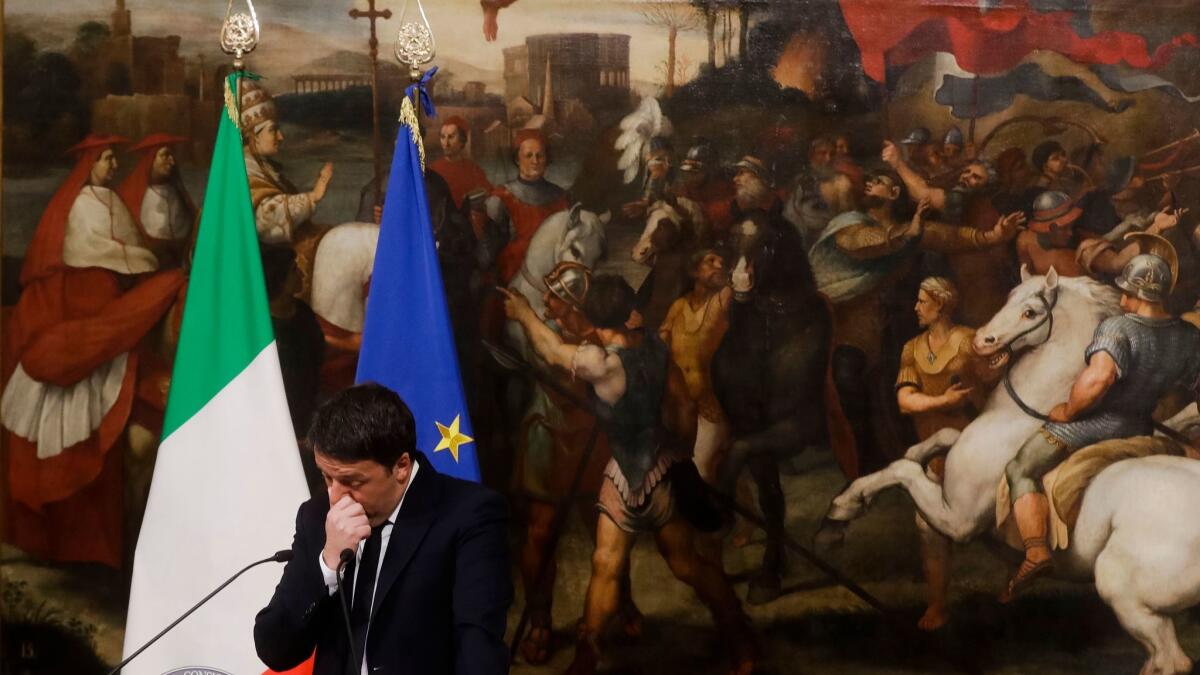Another populist victory: Italian prime minister says he’s resigning after referendum defeat

Italian Prime Minister Matteo Renzi announced his resignation early Monday, sending shock waves around Europe, after he was handed a resounding defeat in a referendum by anti-establishment voters.
The prime minister’s plan to slash the power of the Italian Senate to speed up lawmaking was voted down Sunday by about 59% of voters, according to early results, marking another victory for populism in the wake of Britain’s “Brexit” and Donald Trump’s triumph in the United States.
“I assume all the responsibility for this defeat,” Renzi said, acknowledging a “clear” victory by his opponents. He said he would hand in his resignation later Monday to President Sergio Mattarella.
“The experience of my government ends here,” he said.
Turnout was high by Italian standards, at nearly 70%, after a tough campaign that saw politicians trading insults while voters struggled to understand the fine print of the changes to the constitution required by Renzi’s reforms.
The proposed changes would have reduced the number of senators in Parliament from 315 to 100, and would have meant that most laws could be passed without Senate approval.
Mattarella may ask Renzi to seek a vote of confidence in Parliament and form a new government.

Opposition was led by the anti-establishment Five Star Movement, whose founder, comedian Beppe Grillo, claimed the changes would hand unprecedented power to the Italian government while crippling the country’s checks and balances. Grillo asked Italians “to vote with your gut, not your brain.”
Among other things, the Five Star Movement wants Italy to drop the euro currency.
Matteo Salvini, leader of the anti-migrant Northern League party and a “no” vote campaigner, said before casting his ballot that he hoped to emulate “the revenge of the people” that led to Trump’s victory.
European leaders had lined up to back Renzi, and the result was seen by some as heralding a period of political instability that could make Italy’s ailing, debt-laden banks a potential flashpoint for a run on Europe’s fragile finances.
Attention will focus on the world’s oldest bank, Monte dei Paschi di Siena, which urgently needs to raise 5 billion euros — an operation that may come unstuck if investors now give Italy a wide berth.
European far-right populist movements energized by Britain’s ‘Brexit’ vote and Trump’s victory »
Marcello Messori, an economics professor at Rome’s LUISS university, expressed hope that the shock to the markets could be “absorbed rapidly” if a new government can be formed quickly.
“Mattarella will prefer Renzi to carry on governing to minimize the political fallout, but Renzi won’t want to be seen to be clinging on to power at any cost, so he may refuse,” said Roberto D’Alimonte, a professor of politics at LUISS.
“If he does, Mattarella could decide to ask someone from Renzi’s Democratic Party to form a government, or may appoint a ‘technocrat’ government of experts,” he said.
Before new elections are held, possibly as soon as next spring, a new administration will be tasked with writing a new electoral law, since the current rules drawn up by Renzi’s government only apply to the lower house, so convinced were its framers that the referendum would annul the Senate.

After becoming mayor of Florence at 34, Renzi engineered a backroom coup within the center-left Democratic Party to take over as prime minister in 2014, bringing bold promises to shake up Italy’s bloated Parliament and creaking legal system.
Two and half years later, the self-styled “Demolition Man” had failed to lift Italy out of its economic slide, which has seen industrial output decline by a quarter since 2008. That failure encouraged voters to use the referendum to punish him.
Along the way, he also lost his reputation as Italy’s anti-establishment scrapper to Grillo.
“Our Parliament is an expression of the will of the people, yet this reform makes the government the center of power, able to control Parliament,” said Rome office manager Giuseppe Cesaro before voting Sunday.
Maurizio Molinari, editor of Italian daily La Stampa, said Italy was now the third country to be hit by the anti-establishment vote, after Britain and the United States.
“We have seen a population in revolt in our country too,” he said.
Kington is a special correspondent.
ALSO
Austrian right-wing populist loses again in presidential race
Europol warns of fresh terror threats to Europe
German Chancellor Angela Merkel says she will seek a 4th term next year
UPDATES:
4:50 p.m.: This article has been updated throughout with quotes, details, background.
This article was originally posted at 3:55 p.m.
More to Read
Start your day right
Sign up for Essential California for news, features and recommendations from the L.A. Times and beyond in your inbox six days a week.
You may occasionally receive promotional content from the Los Angeles Times.






